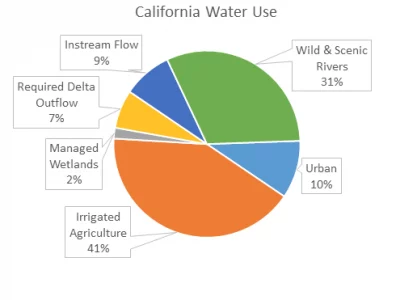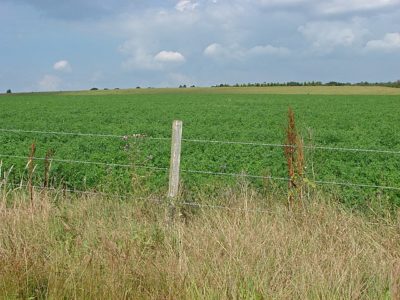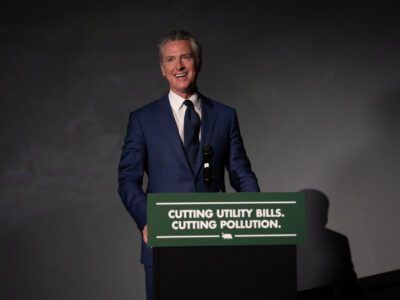What Is Water Use, Anyway?
We Have Met The Enemy, And He Is Us

We all know the story, and the percentages: of water used by human beings in California (i.e. not going to environmental uses), agriculture uses a whopping 80%. So it makes little sense to call on urban users to conserve, so the story goes, until ag goes first. Certainly nonprofits like Food and Water Watch think so:
As drought and climate change continue to wreak havoc on California’s water supply, an environmental advocacy group is calling on the state to limit the cultivation of thirsty crops like almonds and alfalfa, saying the agriculture industry is guzzling most of the state’s supplies at the expense of residents.
But just think about this a moment. It really overstates the issue.

Take alfalfa – please. In one sense, it’s completely true: why in the world are we using valuable water on thirsty alfalfa, only to have it shipped to China as cattle feed (and Saudi Arabia, ditto), and then shipped back here for hamburger? It should be grown somewhere better watered.
All true, and all fair. In the words of Marisa Tomei, how-EVAH:
Who actually is eating all that hamburger? Probably people in the most heavily populated areas of this state and other states, namely: people in cities and suburbs. Put another way, aren’t the “users” of the water also the people who consume the end-product of what the water goes for? Isn’t it a little ridiculous for people like me to munch on almonds and then trash the farmers that grow them? (I don’t worry as much about alfalfa because I don’t eat beef, but you get the idea).
Now, it isn’t necessarily the case that alfalfa wouldn’t be produced as cheaply if we stopped using, say, the Colorado River, to grow it in the Imperial Valley. Maybe once that spigot was turned off, alfalfa would be grown somewhere better watered, so in fact it would make more sense to grow it there (wherever that might be). Fair enough, and I would support that.

But one reason why alfalfa (and rice etc.) are being grown in California is because they get the water, and that allows them to produce it more cheaply than growing it somewhere better watered. It might make more sense in terms of the use of water generally to stop growing it in the Imperial Valley, and one could say that really, the price of alfalfa-fed hamburger is really being subsidized by unsustainably cheap water. I think that that is plausible, and probably true.
But once again, who is eating that hamburger? Not the alfalfa farmers. City and suburban people are. And it obscures the issue by dismissing it as an “agricultural” use. If you eat hamburger, you are “using” that water. If you want to use less of it, then you should pay more for your hamburger.
It’s all very well and good to condemn ag for wasteful water use, and I do. But we need to be clear, at least to ourselves, what that means.
In the end, there is no free lunch. Whether you eat almonds or hamburger or anything else.
Reader Comments
7 Replies to “What Is Water Use, Anyway?”
Comments are closed.






Did you mean “munch,” and not “much,” in reference to eating almonds? Otherwise, enjoyed your post.
Might be nice to explore the logical next step for those who want to tell farmers what should be grown with the water entering their farms. Such control was tried once in what was then called “the Ukraine.” The results were widely published … and ramifications still felt today.
Fixed. Thanks!
One problem: the U.S. imports very little beef from China. In fact, we export far more beef to China than we import. Canada, Mexico, Australia and New Zealand provide over 3/4 of U.S. beef imports, and they don’t rely on Imperial Valley alfalfa. I have no beef (sorry!) with alfalfa. But I do question the wisdom of growing it in the desert where it demands huge amounts of heavily subsidized water. In effect we export water to China during a severe drought.
I *completely* question growing it in the desert with huge amounts of heavily subsidized water. But even if we aren’t eating that beef, if we didn’t ship our alfalfa to China, then they would have less feed from us, and would probably look to other sources — like those from Canada, Mexico, etc., which would raise our beef prices.
That would probably be efficient. But we would still have to admit that we are eating beef. There is still no thing as a free lunch. My point is that all the water is interconnected.
Totally agree that all water is interconnected, as is beef. But we may be missing the mark by focusing on beef. My admittedly hasty & superficial research says alfalfa is especially valued feed for dairy cattle, both in California—America’s true “dairyland”—and in China, where some major dairy regions are 100% dependent on U.S. alfalfa from—you guessed it—the Imperial Valley. Except for high-end cheeses, dairy markets tend to be more local/regional.
And this is really why here at home, we eat very little beef now and no more almond milk. Trying to reduce the footprint of your water use is importantbut (pardon the pun, a drop in the bucket.) Growing food for export & profit is a big issue. If the water is cheap and the profit is big, corporations will not do the right thing because they are there to make $. It is the for profit system pushing the water use. If water use cost, say the cost of bottled water (another for profit use) that might change the equation.
Climate change is the real problem.
Our water issues should be solvable, by a pipeline if need be.
Btw, if we didn’t use the water, what would happen to it? Wouldn’t it end up in the ocean, which is rising?
There are lots of ways to improve farming techniques that don’t involve me being put on a diet by you guys. (See James Wimberly comments on John Quiggin’s site.)
I said all this more politely, but the machine ate it.